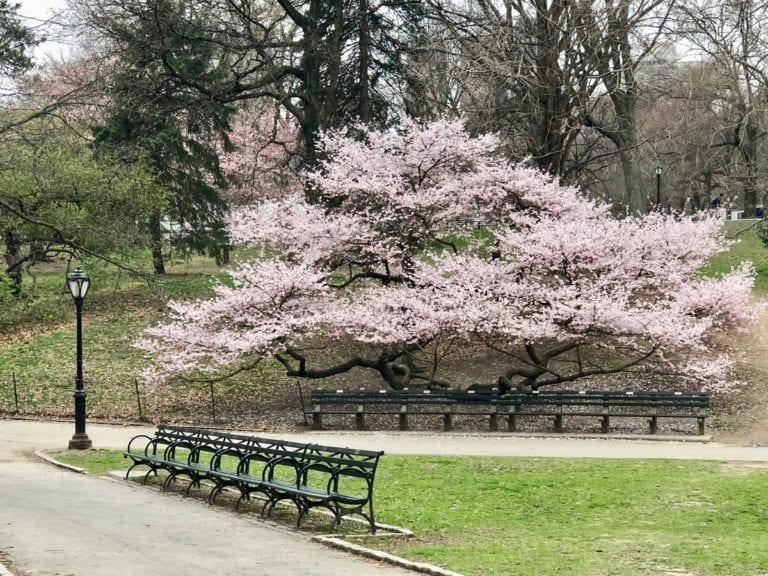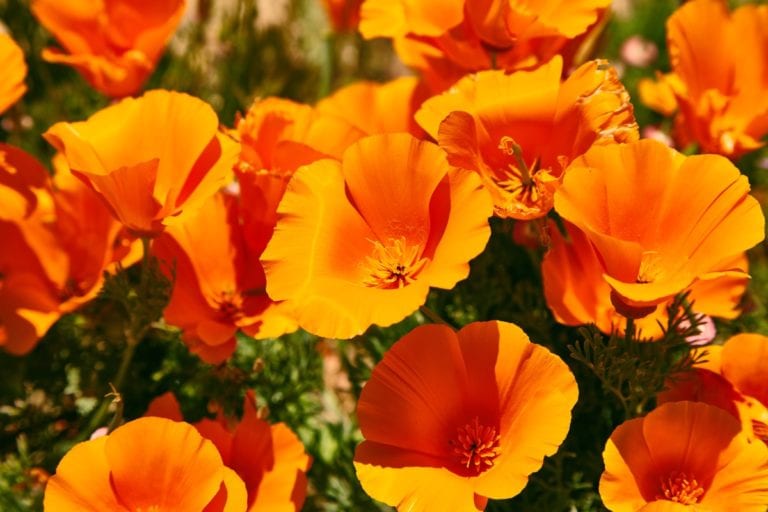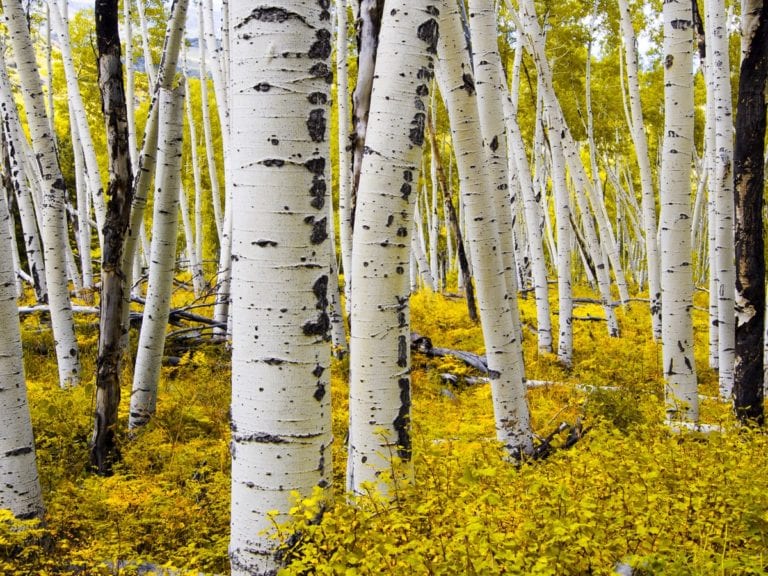785th Week: Cultivating A Sense of “Earth Kin”
Walking across Central Park on the morning I go to my office to water plants and pick up mail, I was struck—as I always am—by the return of the green. All over the park, many trees are putting out leaves, others are laden with beautiful flowers, bushes are filling out with their green garb. The main feeling of it all is an expression of the abundant presence of life, of the intelligence and vibrant expression of Nature’s intelligence and creativity.
As I took in the beauty all around me, I was reminded, powerfully, that this beautiful planet doesn’t need us, but we cannot survive without its gifts. We and all our earth kin are part of a complex ecology that many of us have studied for years and yet, collectively, many of our human kin somehow haven’t taken in or taken seriously this fact of our planetary life. With Covid-19 now a painful and challenging reality, and with the worldwide halt in our usual activities, we vividly see the impact we have had on our environment. Skies have cleared. Mountains hidden from view for decades now stand out clearly in the landscape. Waterways are clearing and wildlife is returning to areas previously avoided because of human activity. Even as we see how resilient and stunningly responsive the planet is when we stop polluting as we have been doing for so long now, I find myself wondering how many of us will remember this and commit to finding new ways to go forward.
There can be no argument about the destructive effects of our use of fossil fuel. Both the production and the use of coal, oil and its other product—plastics, despoils the environment, kills off many kinds of our earth kin, and affects our own immune systems, even as we already have available less-damaging alternatives.
So, for this week’s practice, I invite you to attune to your experience when you come across photos of a healthier environment that we can now see clearly, or when you look around your own local environment and notice healthy shifts that have spontaneously occurred. Take a moment to notice what happens in your body, what touches your emotions, what kinds of thoughts accompany seeing, for example, the clarity of the Himalayas, a view not seen for 30 years, or when you see animals moving more freely in places that are generally crowded with humans. Pay particular attention to your heart space as you do this. How does this awareness touch your heart? How does it touch your whole being?
Also, think about the danger of objectifying our earth kin as “resources”. How might you even more consistently see the living presence of people, animals, insects, trees, and all other life forms as Life unfolding itself in accordance with its proper and necessary place as part of the earth community? All are lives that count within the ecological complexity, creativity, and wisdom of our beautiful planet. How is it to move through the world acknowledging that everything you encounter is a life that has its rightful and important role to play as a valued member of our earth community—and to feel that fact?
Be sure to leave room for mixed feelings. All of us are accustomed to a way of life that has depended on things that have harmed our planet, many species of our earth kin, and our human family. Does that harm and its cost touch you? What feelings arise when you think about how this will have to change, even if you can’t begin to imagine how?
As always, please remember to bring along curiosity as your constant companion and to pat gently on the head any judgments that may arise, allowing them to move on through without your having to do anything with or about them.



